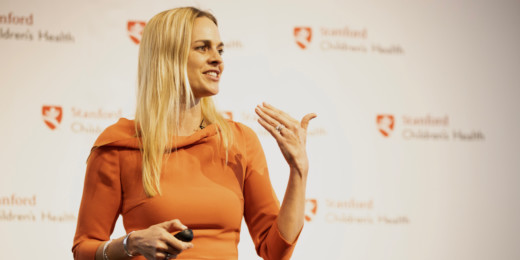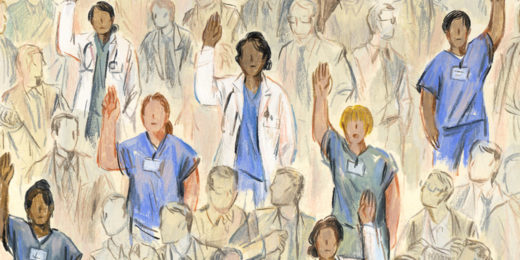A new policy brief from Stanford researchers identifies the connection between paid family leave and infant and maternal health benefits.
Month: April 2019
Halfway through med school: Looking back and moving forward
In this Stanford Medicine Unplugged article, a second-year student reflects on how much she's learned since beginning medical school.
More genetic testing needed for ovarian cancer patients, new research suggests
The prevalence of genetic testing in the United States falls short of the recommended guidelines for women with ovarian cancer, new research indicates.
Could a vibrating glove become part of stroke therapy?
Stanford researchers are collaborating to develop a vibrating glove that could improve hand function following a stroke if worn for several hours a day.
Soda taxes increase prices but lower consumption, studies find
Taxes encourage people to buy less soda, according to two new studies that find sugar-sweetened beverage taxes reduce local consumption.
Countdown to Big Data in Precision Health: Robots that are here to help
Maja Matarić, a robiticist at the University of Southern California, plans to speak about socially assistive robotics at Big Data in Precision Health.
An ear, nose and throat clinic, just for kids, in Zimbabwe
In a southern African nation, a clinic is helping children who suffer from debilitating ear, nose and throat conditions that are rare in the U.S.
Portraits of Stanford Medicine: Three new podcasts on diversity
In the Portraits of Stanford Medicine series, host Paul Costello interviews interesting individuals to showcase the diversity of Stanford Medicine.
About the future: A look at the Pediatric Innovation Showcase
Experts came to Stanford for the Pediatric Innovation Showcase to learn about many approaches to helping children's health, from social media to surgery.
In the Spotlight: Working toward pure populations of stem cells
This In the Spotlight features Kyle Loh, a stem cell researcher who is working to create pure populations of cells. He also enjoys road bicycling.
Brain area identified that may predict how PTSD patients respond to therapy
PTSD patients who do not respond to exposure therapy may have a disruption in a part of the brain known as the ventral attention network.
Behind the numbers: The projected rise in health care spending
Health spending in the U.S. is projected to accelerate in the next decade. Stanford professor Kevin Schulman offers an explanation.
A journey to leadership in global health: One woman’s story
Rose Clarke Nanyonga, a nurse and academic leader in Uganda, is one of the women leaders featured in the latest issue of Stanford Medicine magazine.
Blocking protein that impairs brain’s clean-up crew improves old mice’s smarts
Brain cells called microglia keep brains young by eliminating accumulations of protein debris. But their garbage-colllection ability fades with age.
An ode to those who Matched
A fourth-year Stanford medical student reflects on this year's Match Day.
Genetic counseling in short supply in Mexico
New research has found that many regions of Mexico lack genetic counselors; increased outreach and training could help, Stanford researcher suggests.
















